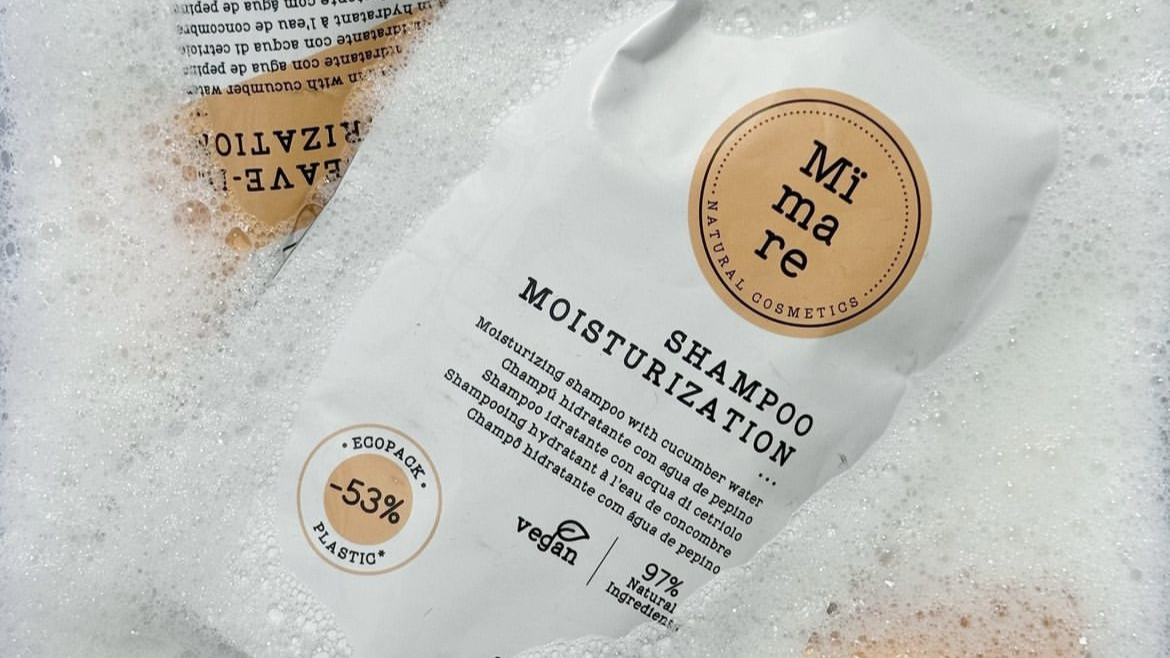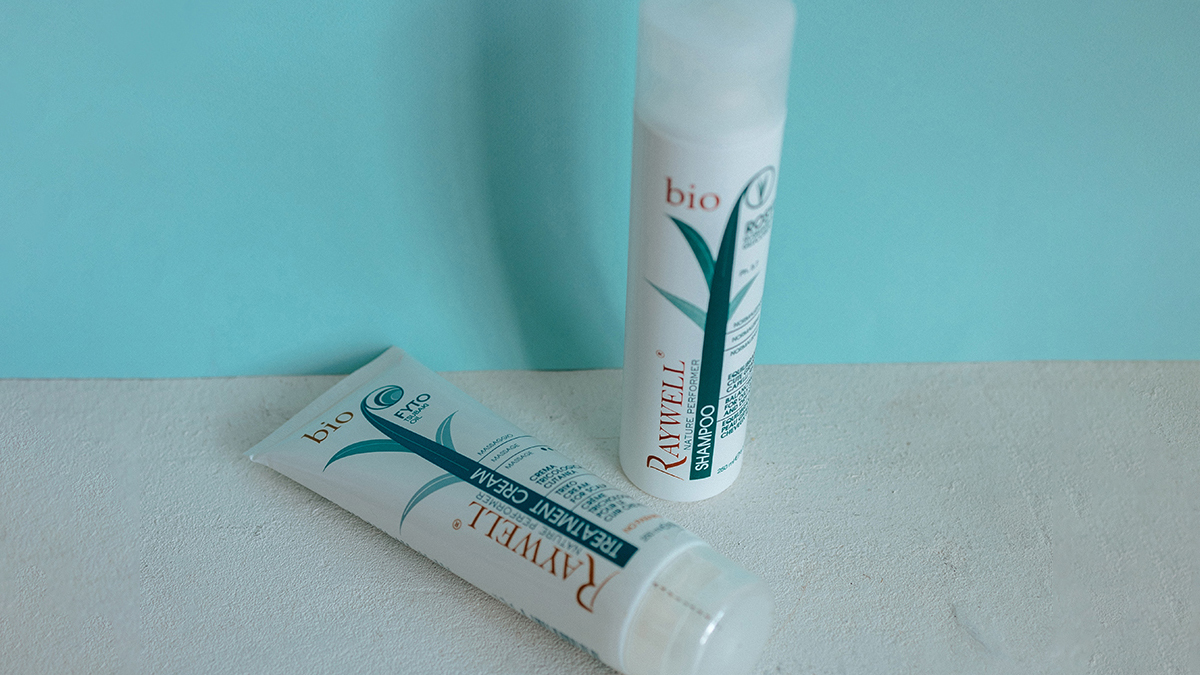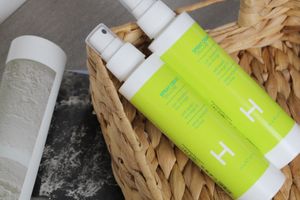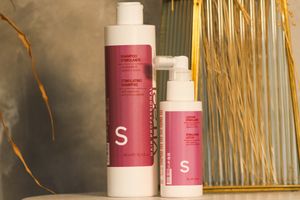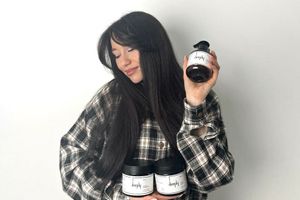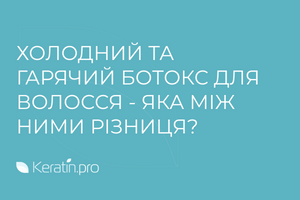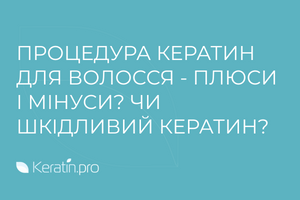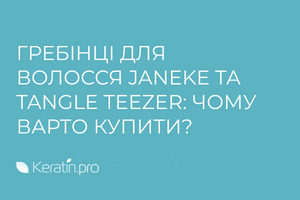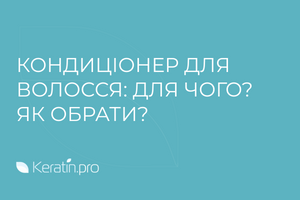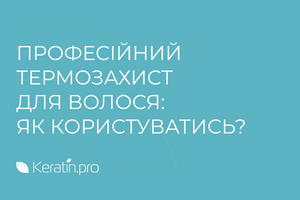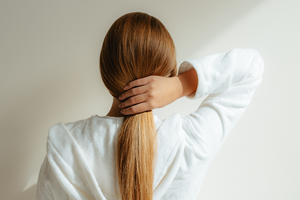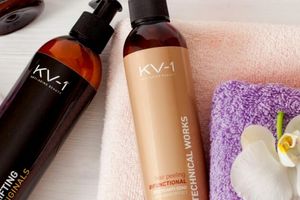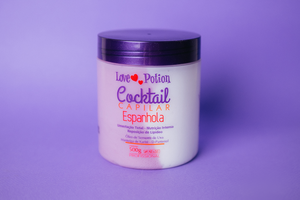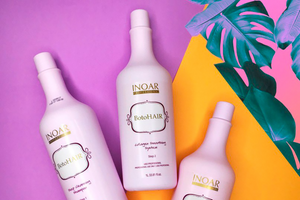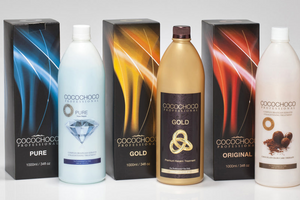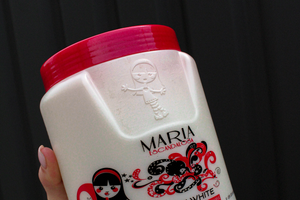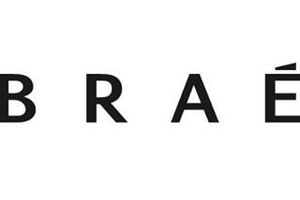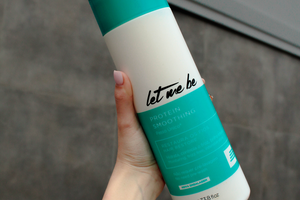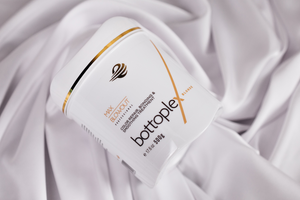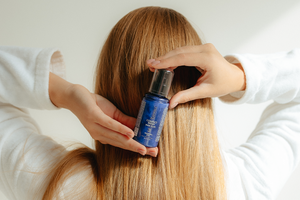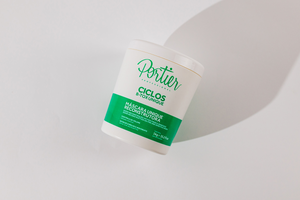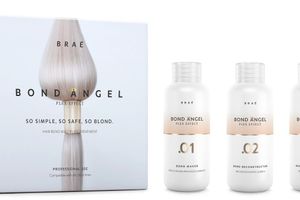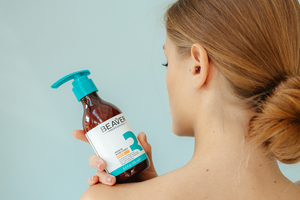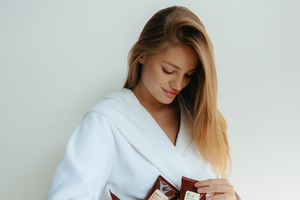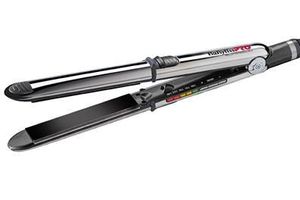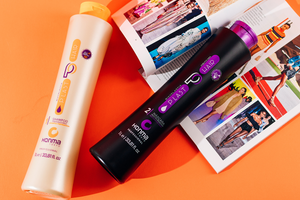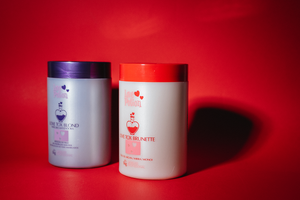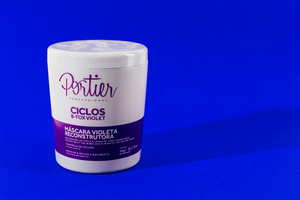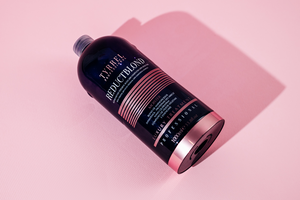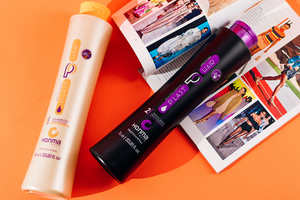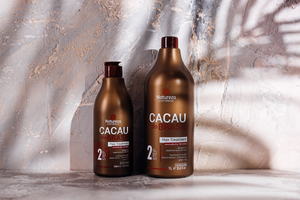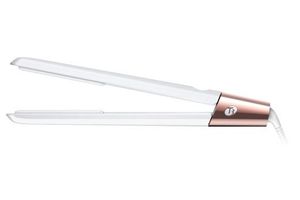Wet, lather, and rinse - we all know the classic shampooing routine very well. However, do you know why shampoo lathers so well? This is the most important stage of the process, because it is the one that cleanses. The sulfates in shampoo cause the formation of foam, which then removes oil, grease, and dirt. The main drawback of sulfates is that they can be too aggressive.
The scalp produces natural oils, such as sebum, which are essential for its natural protection. Sebum not only protects against pathogens and potential bacterial infections, but it also travels from the scalp down the hair, protecting each hair from damage and drying out. Sulfate shampoo can make hair dry, frizzy and brittle, and cause scalp irritation. That's why sulfate-free shampoo was created - an alternative with many benefits.
What is sulfate-free shampoo?
Sulfate-free shampoo is a type of shampoo that does not contain sulfates, which are aggressive detergents commonly found in traditional shampoos. Sulfates, such as sodium lauryl sulfate (SLS) and sodium laureth sulfate (SLES), are surfactants that create the lather mentioned above and help remove dirt, grease, and product residue from the hair and scalp.
Benefits of using a sulfate-free shampoo
Sulfate-free shampoos have many benefits over traditional shampoos that contain sulfates, the main ones being
- Gentle cleansing: Sulfate-free shampoos have a milder formula that allows them to cleanse hair more gently without stripping away the natural oils that are essential for healthy hair and scalp.
- Preservation of color: Sulfates can leach pigment from colored hair, whereas sulfate-free shampoos usually have less of an effect on hair color, allowing for longer hair color retention.
- Reducing the risk of allergic reactions: Some people are prone to have allergic reactions to sulfates, such as itching, redness, or irritation of the skin. Using sulfate-free shampoos can help avoid such reactions.
- Environmentally friendly: Sulfate-free shampoos are a more environmentally friendly option because they are usually made from plant-based ingredients, unlike shampoos with sulfates.
- Extra moisture retention: They help the scalp retain moisture because they don't strip away natural oils. This is especially beneficial for those who suffer from dry or damaged hair, as retaining natural moisture helps maintain the overall health of the hair.
Overall, sulfate-free shampoos can be beneficial for those looking for a gentler, more natural way to care for their hair and scalp. However, they may not be suitable for all hair types, so it's always a good idea to conduct an allergy test and consider your individual skin and hair needs before using them.
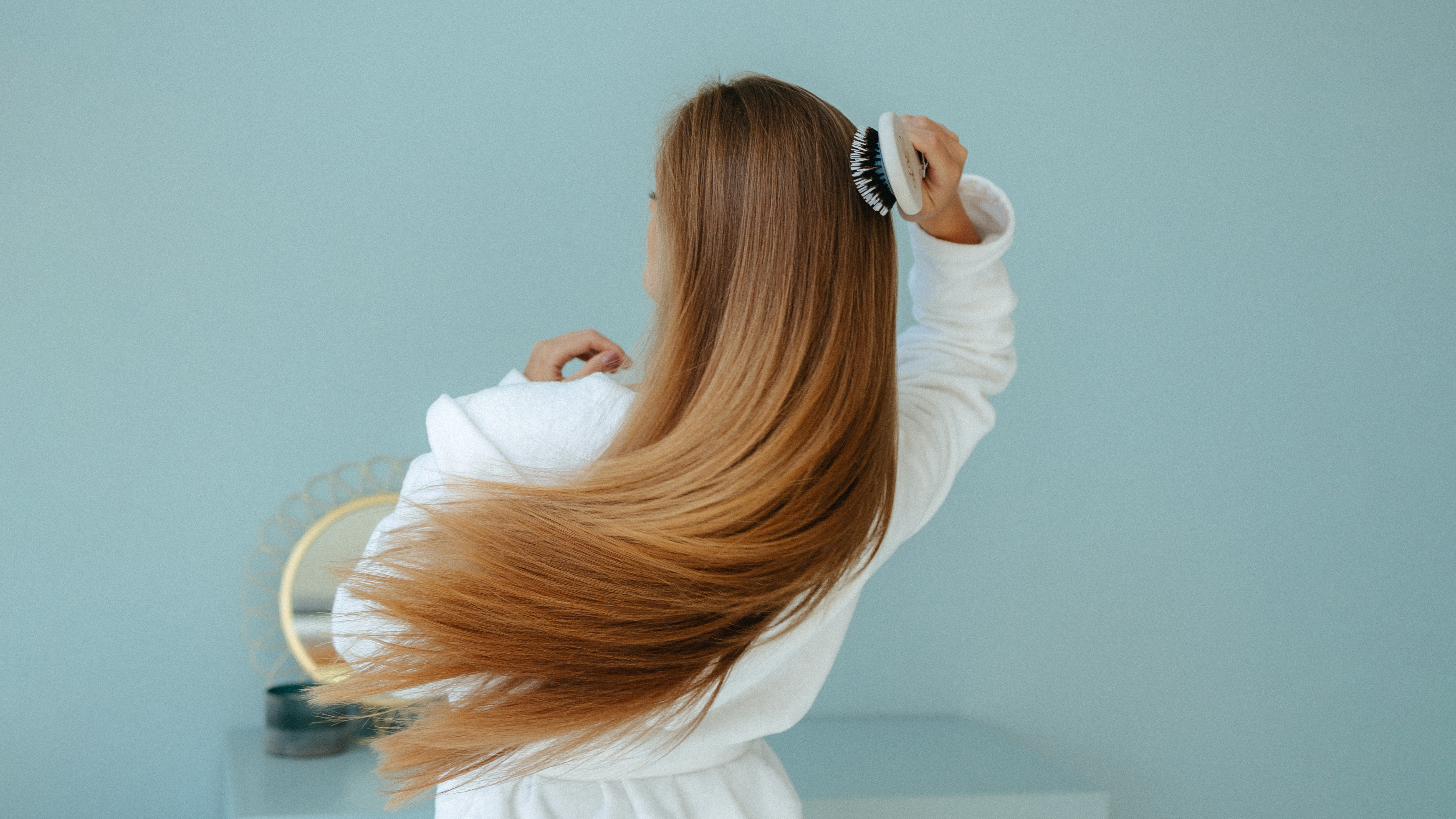
How do I know if my shampoo is sulfate-free?
Sulfates come in many different forms, so their names can be quite complicated and confusing for the average consumer. We have listed the following most common sulfate ingredients to make your search easier:
- Sodium lauryl sulfate and sodium laureth sulfate (SLS and SLES)
- Parabens
- Phthalates
- Triethanolamine (TEA)
- Mirette sodium sulfate (SMS)
- Ammonium Laureth Sulfate (ALS)
Fortunately, it's getting easier to choose a sulfate and paraben-free shampoo. Pay attention to the "Sulfate-free shampoos" section of our store, where we have collected all the best cleansers for hair care after keratin.
What are the disadvantages of using sulfate-free shampoo?
A relative disadvantage of using sulfate-free shampoo is the level of its cleansing. Those who are used to conventional shampoos may feel that their hair is not clean enough after using a sulfate-free shampoo. This is usually due to the fact that they are not used to when their hair retains its natural oils. There are several ways to fix this and get a deeper clean with a sulfate-free shampoo.
- First, try taking the extra time to massage your scalp while you're washing, rubbing the sulfate shampoo into your scalp. Since it doesn't lather, an easy way to enhance its cleansing power is to physically rub it into your scalp. Stimulating your scalp has significant health benefits in itself, so why not try massaging your sulfate-free shampoo with a scalp massager?
- Secondly, double shampooing is much better at removing oil. This is especially useful for people with long or thick hair, as such hair tends to hold more oil. The first cleansing basically removes most of the oil, which consists of natural oils, dead skin cells, and daily impurities. The second cleansing ensures the complete removal of any residual build-up, leaving the scalp and hair in optimal condition.
For those who are trying sulfate-free shampoo for the first time, it may take a period of adjustment. However, despite all of its benefits, it's worth trying and finding a sulfate-free hair care product that works for you.
Can I use sulfate-free shampoo for colored hair?
In order for colored hair to remain healthy and shiny, it is very important to maintain its condition. Sulfate-free shampoos do not leave the cuticle open, do not affect natural proteins and do not remove natural oils. They work to gently cleanse away enough oil and build-up on the scalp without removing the necessary elements. That's why sulfate-free shampoos can help hair retain its color and ensure that it is in the best possible condition.
What shampoo should I use for my hair after keratin?
After the keratin straightening procedure, it is important to use a shampoo that will help preserve and maintain the results of this procedure. It is worth considering using sulfate-free shampoos, as they gently cleanse the hair without removing the keratin that was applied during the procedure. Sulfate-free shampoos also help to retain moisture and strengthen the hair.
Below we have listed the best shampoos for hair after keratin:
- Shampoo for daily use Raywell Bio Poma
The delicate formula of the shampoo is designed to keep your hair moisturized and well-groomed even with daily use. Apple polyphenols penetrate well through the skin barrier and are conductors for other substances. Floretin, contained in polyphenols, affects sebum production, reducing sebum formation and reducing the expression of inflammatory mediators. The shampoo also contains Japanese camellia oil, which fills the hair with shine, and pomegranate extract restores the lipid barrier and moisturizes both the scalp and hair length.
- Envie Luxury Sos Express Amino Acid Shampoo
This shampoo effectively restores damaged and brittle hair, giving it a natural shine and regenerating its structure. The shampoo contains natural ingredients that nourish the hair and make it smooth, while restoring its balance. Envie Luxury Sos Express Shampoo is suitable for all hair types and can be used daily. The gentle formula without SLS and parabens effectively cleanses the scalp and strands, leaving them soft, shiny and strong.
- Deeply Sulfate-free Shampoo
Deeply Sulfate-free Shampoo is designed to gently cleanse dry scalp and hair. This shampoo is designed to gently cleanse the scalp without disturbing the hydro-lipid layer of the hair. It contains a large number of moisturizing ingredients that help to smooth frizz and reduce unwanted hair volume. In addition, it helps to prolong the effect of hair straightening and restoration after various procedures, such as keratin straightening, nanoplasty and others. This shampoo is ideal for normal to dry hair types.
- Mimare Moisturizing Shampoo
Mimare Moisturizing Shampoo is the best solution for dry hair. This shampoo with cucumber extract provides softness, moisturization and makes hair easier to comb. The main advantage of Mimare Moisturization Shampoo is its ability to moisturize and refresh hair, thanks to the high water content of cucumber extract. In addition, the shampoo contains flaxseed oil, which deeply moisturizes and gives the strands a natural shine and softness.
Which sulfate-free shampoo is suitable for oily hair?
For oily hair, it's important to find a sulfate-free shampoo that balances the scalp, cleanses the hair of excess oil and impurities, but doesn't dry out the skin. Since regular sulfate-free shampoo can be weak and cause dandruff, sulfate-free shampoos have been created specifically for oily hair. Here are our favorites:
- Normalizing Shampoo Raywell BIO ROSYL
Raywell Bio ROSYL Normalizing Shampoo is an innovative treatment designed to effectively address the problem of excessive sebum production and restore natural sebum regulation. Its unique formula provides highly effective cleansing while saturating hair with moisture and beneficial trace elements.
- Shampoo with Probiotic Extremo Pre-Probiotic Detox Trivalent
Detoxifying shampoo with probiotic is intended for all cases of hair loss, dandruff and excessive oiliness of the scalp. The shampoo deeply and gently cleanses the scalp, moisturizes and restores hair length. It contains an organic complex of plant extracts aimed at maintaining the biophysiological environment of the scalp. The probiotic has a positive effect on the scalp microbiome, eliminating the cause of dandruff.
How to use sulfate-free shampoo?
Using a sulfate-free shampoo is similar to using any other shampoo, but there are some recommendations that can help maximize its benefits:
- Before applying the shampoo, wet your hair with lukewarm water. This will help open the pores of the skin and prepare the hair for cleansing.
- Apply a small amount of sulfate-free shampoo to the palm of your hand, rub between your palms, and then apply to damp hair. Spread the shampoo evenly over the entire length of the hair, as well as on the scalp.
- To cleanse the scalp and stimulate blood circulation, make gentle massage movements. This will help remove dirt and excess oil.
- After you have distributed the shampoo, rinse it off thoroughly with warm water. Make sure that all shampoo residue is completely removed to avoid scalp irritation.
- After using a sulfate-free shampoo, you can use a conditioner or moisturizer to further moisturize and strengthen your hair.
It is important to remember that each person has their own hair care needs, so experiment with different products and frequency of use to find the best regimen for your hair and scalp.























